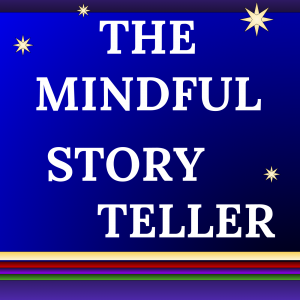
“I think an instinct for selection goes with the art of storytelling… There is…[this] very personal relationship that exists between all storytellers and the stories they tell…I am firmly convinced that certain storytellers are allergic to specific stories…Herein lies a part of the storyteller’s integrity, to be honestly aware of this and say: This story is not mine…This intimate relationship between story and teller must be reckoned with.” – Ruth Sawyer, The Way of the Storyteller, p. 151-152.
∞∞∞∞∞∞∞∞
It is as if we are strangely compelled to tell some stories while other tales strongly repel us – and we pay dearly if we tell the ones we should not. There are curious metaphysics at work here. I recall an evening in Flagstaff, Arizona – telling a sacred story in order to impress. Afterwards, there was a sickly feeling – deep in the gut. A sense of the wrongness of the motive. A dishonoring of the tale.
Another time, in performance as a professional storyteller, stories were told to nurses and hospital workers – but the storytelling missed the mark, widely. Stories with humor that had – at other times, in other contexts – been connective tissue, lightly weaving teller and listeners together in a bath of laughter – here, fell flat. The nurses and hospital workers – at least on that particular day – needed something else, something more, perhaps stories of redemptive hope or gentleness – but such tales were not brought forth. And the teller experienced the consequences of failing to tell the tale that wanted to be told.
Some of the most potent stories in my repertoire are those that were initially dismissed – yet they kept floating back, asking to be heard again and again – until they became part of my litany of stories.
There is a strange, magical interplay of time and place and teller and tale …and, of course, listener. Inherent in this is an invitation to see each story as living matter – as a being with a will of its own. If tales communicate – and, of course, they do – why not imagine that each tale speaks to the teller, telling her if she should be told, if you are the one to tell her, and also if this is the right time for her to be told. Yes, this all asks for a bit of imagination in the storyteller – but, are we not in the imagination business?
Who among us has not had the experience of telling a story and later wincing with the thought, “Ugh, why did I tell that story tonight?” While you may be less likely to review and reflect upon it, you can also probably point to times when you told the perfect story for the moment – “the story that needed to be told.” Maybe a friend even said to you, “Wow, that was just the story I needed to hear.”
∞∞∞∞∞∞∞∞
See stories as living beings. They know if they should be told, when they should be told, and who should be the one(s) telling them. Stories communicate. Slow down and mindfully listen. If you tell stories in performance, open your subtle senses to know what tales to learn to tell – and when to tell them. And all of us, in everyday conversations, can allow for pauses – creating enough space to ask, “Why is this tale coming to mind? Should I share it? Why or why not? Does this tale really want to be told right now?” Mindfully listen to what the story is telling you, before you decide if you should open your mouth and speak it.
(Music: Courtesy of Adrian von Ziegler, “Sacred Earth.” )